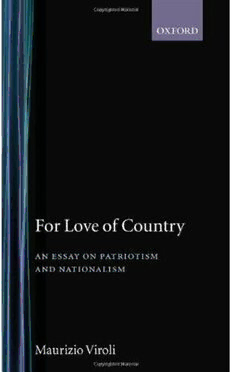
For Love of Country: An Essay on Patriotism and Nationalism PDF
215 Pages·1995·10.448 MB·English
Most books are stored in the elastic cloud where traffic is expensive. For this reason, we have a limit on daily download.
Preview For Love of Country: An Essay on Patriotism and Nationalism
Description:
Reconstructing the historical meaning of the terms nationalism and patriotism, Viroli shows how the two concepts have been used within specific cultural and ideological contexts. He reviews the political thought of modern and early modern Europe, with particular emphasis on France, Italy, England, and Germany, and comes up with a fundamental difference between patriotism and nationalism. Viroli argues that patriotism and nationalism are two ideologies that aim to reinforce and channel two different and powerful political passions: the love of a common good and the love of uniqueness and homogeneity. The Patriot is a supporter of the republic, his enemies are tyranny and corruption; the Nationalist supports ethnic, cultural, or religious unity, and fights against impurity, contamination, and diversity. He concludes, therefore, that while it is morally acceptable to be a patriot, it is morally unacceptable, as well as unnecessary, to be a nationalist to defend the values that nationalists hold dear. This work will be of interest to students and scholars of political theory and political science, as well as to historians of political thought.
See more
The list of books you might like
Most books are stored in the elastic cloud where traffic is expensive. For this reason, we have a limit on daily download.
